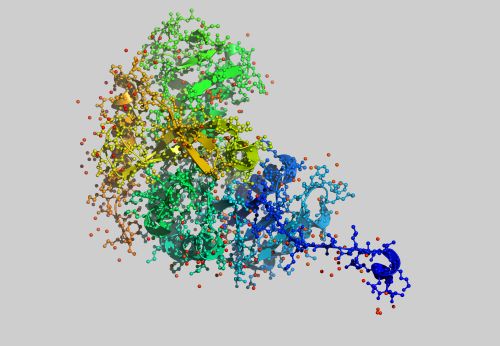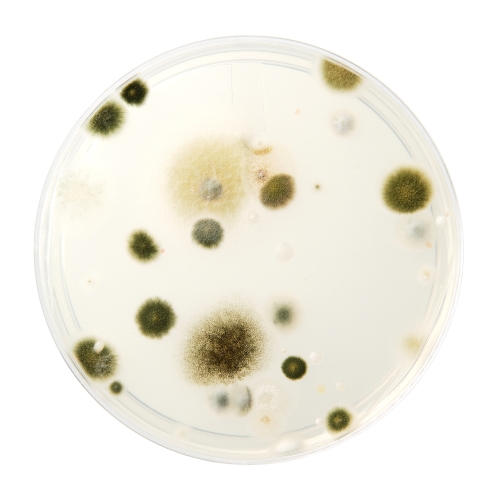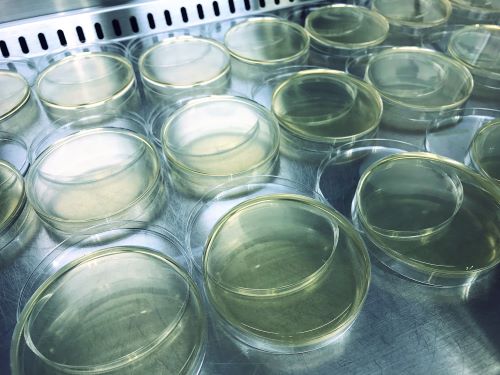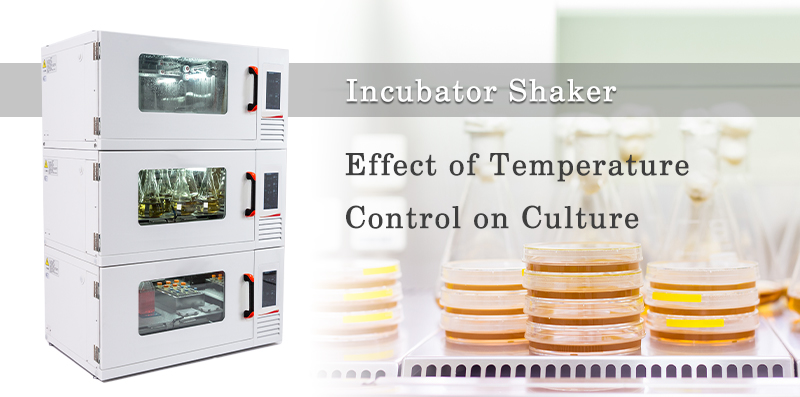In previous article, we discussed about the effects of amplitude and frequency on the culture process. In this issue, we will focus on another important factor – temperature control, which plays a crucial role in the cultivation of cells, microorganisms, enzymes, etc.

Effect of temperature on fermentation :
Temperature control is crucial in the fermentation process, directly affecting the survival and metabolic activity of microorganisms. The optimal growth temperature for most microorganisms is usually between 20°C and 35°C, and too high or too low a temperature can lead to inactivation or even death of microorganisms. Elevated temperatures often speed up enzymatic reactions, promoting the growth and metabolism of microorganisms. However, too high a temperature can inactivate the enzyme, which blocks the production of the product. Therefore, depending on the target product of fermentation, different optimal temperatures need to be set to ensure a smooth fermentation process.
In addition, temperature also affects the physical properties of the fermentation broth, such as viscosity, solubility of the matrix, and the solubility and transfer rate of oxygen in the fermentation broth. Together, these factors affect the kinetics of the fermentation process and the biosynthetic efficiency of the product. Therefore, the precise temperature control of the incubator shaker can effectively optimize the fermentation conditions and ensure efficient production and consistent product quality.
Effect of temperature on enzyme composition and enzyme characteristics:
Temperature changes significantly affect enzyme activity and stability. For example, enzymes cultured at 55°C can still maintain 88%-99% activity after 60 minutes at 90°C; However, the activity of enzymes cultured at 35°C is only 6%-10% after the same treatment. This indicates that temperature has a significant effect on the stability of the enzyme, and higher incubation temperatures can enhance the stability of the enzyme at higher temperatures.

The composition of enzyme mainly includes enzyme proteins and co-factors. Enzymes are special proteins, playing the role of catalysts in living organisms, can accelerate the progress of chemical reactions. The activity of an enzyme depends not only on its intrinsic structure, but also on the presence of cofactors, which can be metal ions, metal-coordinated compounds (e.g., VB12 coenzymes), or complex organic compounds that bind to enzyme proteins to form holoenzymes with catalytic activity. Holoenzymes are the result of the interaction of enzyme proteins and cofactors, and only holoenzymes have a catalytic effect.
Enzymes can be divided into six categories by the nature of the reaction catalyzed by the enzyme :
● Oxidoreductases: Enzymes that promote the redox reaction of substrates, including oxidases and reductases.
● Transferases: Enzymes that catalyze the transfer or exchange of certain groups (such as acetyl, methyl, amino, phosphate, etc.) between substrates.
● Hydrolase enzymes: enzymes that catalyze the hydrolysis of substrates, such as amylases, proteases, etc.
● Lyases : Enzymes that catalyze a reaction that removes a group from a substrate (non-hydrolyzed) and leaves a double bond or its reverse reaction.
● Isomerases: Enzymes that catalyze the interconversion between various isomers, geometric isomers, or optical isomers.
● Synthases: Enzymes that catalyze the synthesis of two molecular substrates into a single molecular compound, and at the same time conjugate the release of phospho bond cleavage with ATP.
These classifications reflect the diverse and complex functions of enzymes in living organisms, and together they constitute the enzyme system in living organisms, which participate in and regulate various life activities.
Effect of temperature on fungal metabolites :
The metabolites produced by microorganisms will also be different under different temperature conditions. For example, when the chlortetracycline streptomyces ferments below 30 °C, the synthesis of chlortetracycline increases; When the fermentation temperature increases, the synthesis of tetracycline is promoted. But at 35°C, chlortetracycline synthesis almost stops. This suggests that temperature has a direct effect on the type and yield of metabolites.

In summary, the temperature control of the incubator shaker is of great significance to ensure the smooth progress of the microbial fermentation process, optimize product generation, and improve the reproducibility of the experiment.
Effect on cell culture
Constant temperature promotes cell growth and metabolism :
Incubator shaker ensures the normal growth and metabolism of cells by maintaining the constant temperature required for cell culture, and the stable temperature environment provides ideal basic conditions for cells to promote their growth and reproduction. Even 1°C above physiological temperature can adversely affect cell growth, and precise temperature control is very important in cell culture.

The right temperature increases oxygen supply and mix the cultures :
The shaking function of the incubator shaker promotes the growth of cells and the homogeneity of the culture by increasing the oxygen supply and mixing the culture. This blend contributes to an even distribution of nutrients, which improves the growth of the cells .
Simulating the internal environment :
By adjusting the temperature, speed, and swing amplitude of the incubator, researchers can simulate conditions in different physiological states to study cell growth, differentiation, and function.
Influence on enzyme composition and enzyme characteristics:
Temperature can also affect the composition of the enzyme system and the characteristics of the enzyme, for example, the residual activity of the enzyme produced by incubation at different temperatures under the same conditions is different, which directly affects the catalytic efficiency and specificity of the enzyme.
Affects the production of metabolites :
Temperature has a significant effect on the number of spores and viable bacteria produced during fermentation, and the optimal temperature required for the growth and accumulation of metabolites by different microorganisms at different temperatures is also different, so the temperature needs to be adjusted according to the different products required for production.
Cellular metabolites include amino acids, nucleotides, polysaccharides, lipids, vitamins, antibiotics, toxins, hormones, pigments, etc.
Cell products are metabolites produced in cell metabolism and other life activities, not structural components of living organisms, but some cell products have functions such as regulation and immunity.

In summary, the influence of thermostatic shaker temperature control on cell culture is multifaceted, which can not only promote the growth and metabolism of cells, but also affect the characteristics of enzymes and the generation of metabolites, providing an efficient and stable experimental environment for cell culture and cell biology research.